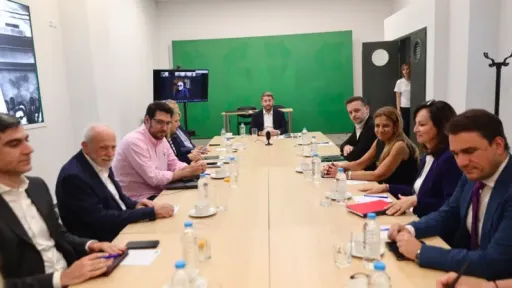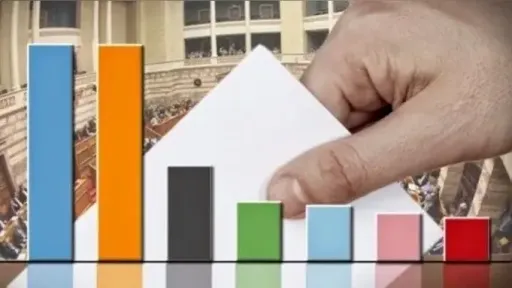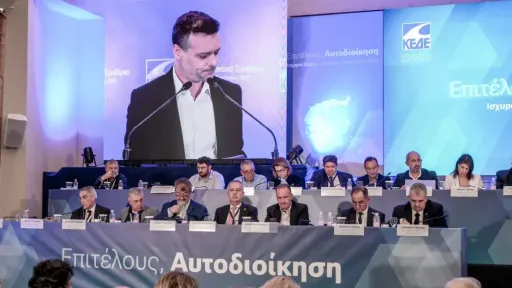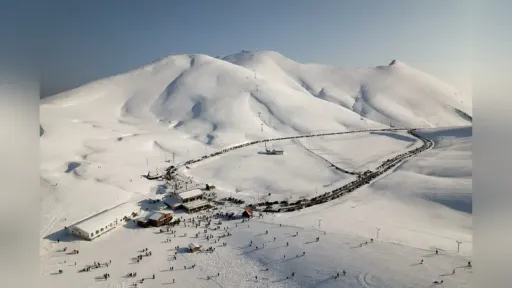Daily clashes rock PASOK as internal divisions deepen ahead of elections

PASOK party is grappling with intensifying internal divisions, as senior figures publicly spar over strategy, ideology, and the party’s future direction. The growing tension reflects a deeper crisis: PASOK’s failure to present itself as a credible governing alternative to the ruling New Democracy.
Amid stagnating poll numbers and a restless political base, the leadership of Nikos Androulakis is under increasing pressure to define the party’s identity — and, crucially, its alliances — ahead of the next national election.
Strategic crossroads: Progressive push vs institutional moderation
The latest flashpoint emerged when former minister Anna Diamantopoulou issued a sharp warning against what she called a drift toward “populism,” likening elements within the party to fringe-left figures such as Maria Karystianou and Zoe Konstantopoulou. Her comments followed remarks by Athens Mayor Haris Doukas, who rejected any post-election partnership with New Democracy and called for a party-wide congress to set a clear strategic course.
Diamantopoulou’s intervention was prompted by the leadership’s support for Panos Routsis, a hunger-striking activist and father of a victim of the Tempi rail tragedy. She argued that while empathy is vital, PASOK must resist “waving the flag of populism” and instead commit to institutional, policy-driven action.
Her remarks sparked immediate backlash. Former minister Pavlos Geroulanos and veteran MP Haris Kastanidis publicly defended the leadership’s stance, framing the issue as one of moral responsibility rather than ideological compromise.
“Fighting populism requires first understanding what populism is,” Kastanidis said in Parliament, quoting political theorist Ernesto Laclau. “Standing with the victims’ families is not populism — it’s justice.”
Androulakis remains silent amid growing dissent
Party leader Nikos Androulakis has so far refrained from directly addressing the controversy. According to close aides, he believes the matter has already been sufficiently explained. However, critics argue that the leadership’s continued reliance on vague references to “programmatic battles” has only deepened the strategic ambiguity.
PASOK remains stuck in third place in national polls — trailing New Democracy by around 15 points — and there is growing concern within the party that it risks being overtaken by SYRIZA or even a new center-left formation should prominent figures such as Alexis Tsipras or Maria Karystianou return to the political stage.
Old tensions, new stakes
The internal debate has revived familiar ideological battles within PASOK. While Doukas and Geroulanos advocate for a broad progressive alliance, others, including Diamantopoulou, argue for a more centrist path rooted in institutional reform and political stability.
Speaking recently in Kilkis, Diamantopoulou warned against adopting tactics reminiscent of the turbulent Syriza years.
“We lived through the fists, the broken glass, the anger. We will not repeat that,” she said.
“The responsibility we carry is not to become another Karystianou or Konstantopoulou.”
Yet critics argue that such rhetoric risks disconnecting the party from large swaths of Greek society, particularly younger voters and those mobilized in the wake of the Tempi disaster — a demographic increasingly skeptical of mainstream political responses.
A party at a crossroads
As the election clock ticks down, Androulakis faces a critical challenge: reconciling PASOK’s internal factions and reviving its role as a relevant political force. Veteran party members recall former secretary Costas Laliotis’s quip that “PASOK has seven lives.” But today, many fear the party is running out of them.
Without a unifying message or a decisive strategic shift, analysts warn, PASOK risks drifting further into irrelevance — not because of external threats, but due to its own inability to define what it stands for in a changing political landscape.







